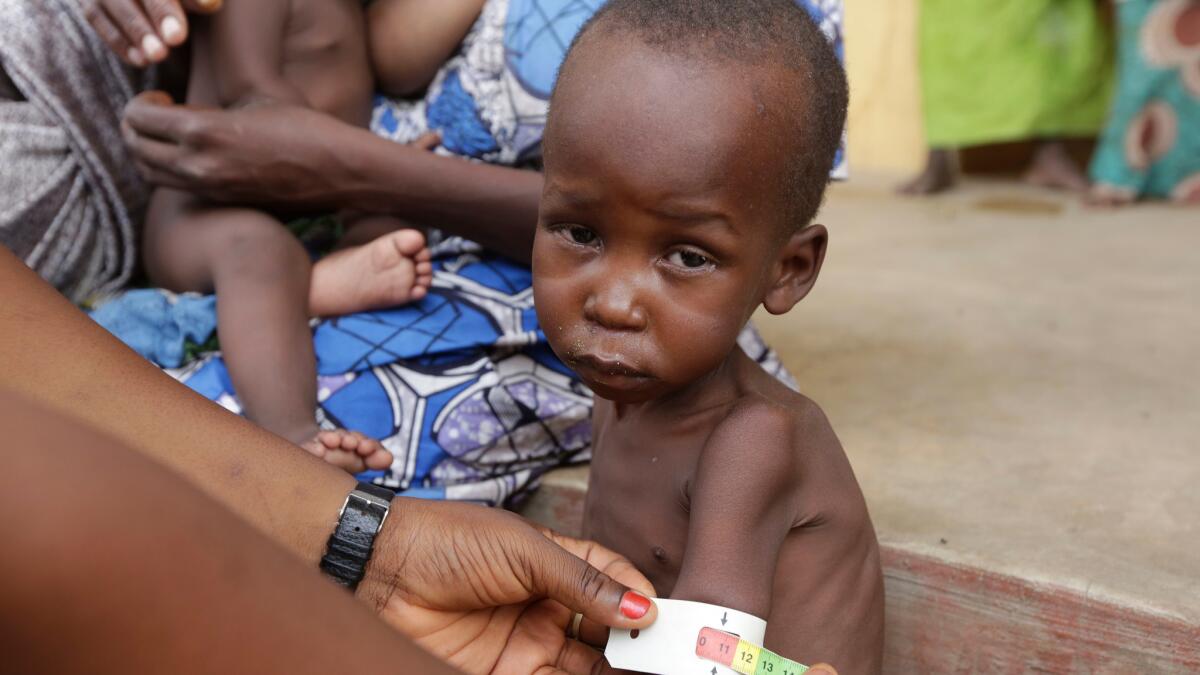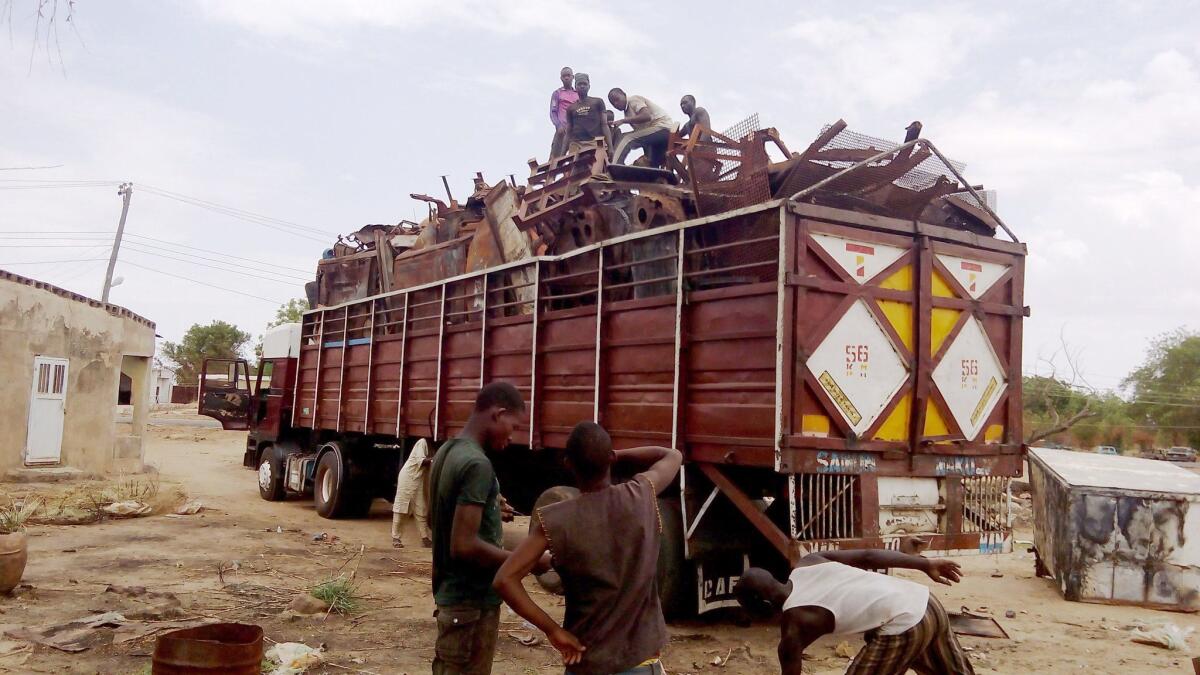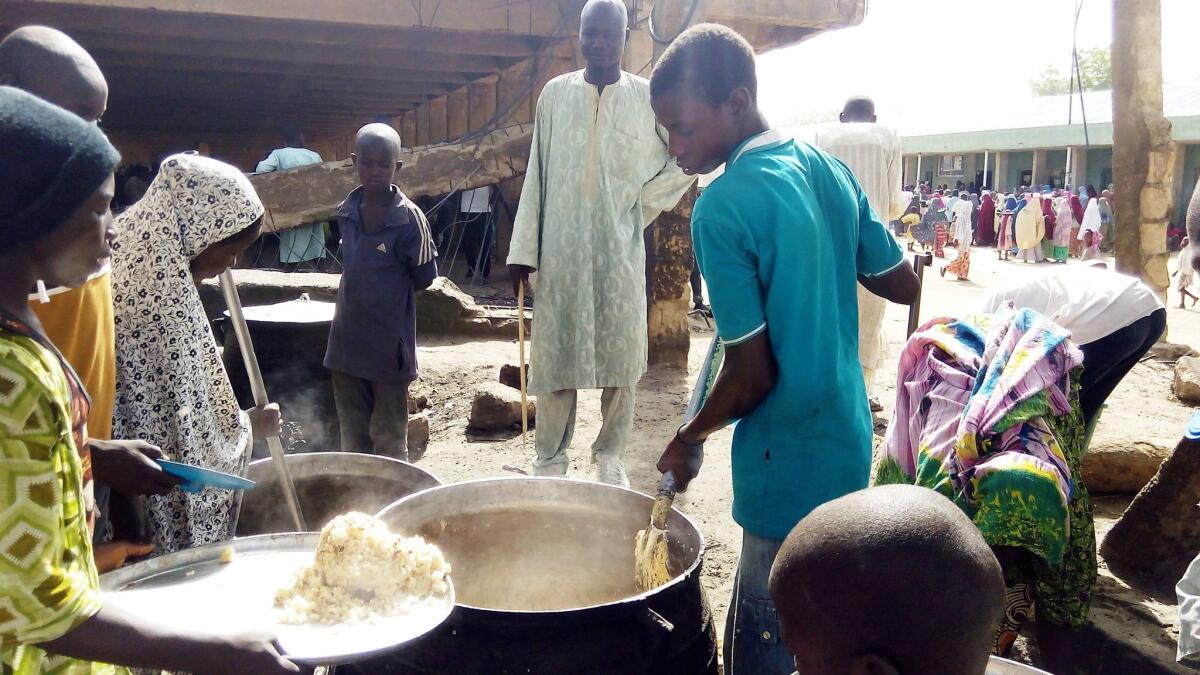‘Catastrophic humanitarian emergency’ at Nigerian refugee camp

More than 1,200 people living in a camp for internally displaced people in northeastern Nigeria have died from starvation and sickness during the last year in what is becoming “a catastrophic humanitarian emergency,” according to the medical humanitarian organization Doctors Without Borders.
The camp, located on a hospital compound in the remote town of Bama in Nigeria’s Borno state, hosts about 24,000 people, including 15,000 children, and they are in a “dire health situation,” the aid agency said this week.
“We have been told that people there, including children, have starved to death,” Ghada Hatim, head of Doctors Without Borders’ mission in Nigeria, said in a statement. “We were told on certain days more than 30 people were dying due to hunger and illness.”
Violence in northern Nigeria fueled by the Islamist extremist group Boko Haram has forced more than 2.5 million people to flee their homes, according to United Nations statistics.

News of the crisis in Bama came the same week as the international body marked World Refugee Day and called for increased unity and efforts to assist the record 65.3 million people who are displaced around the globe.
A medical team from Doctors Without Borders – also known by its French name, Medecins Sans Frontieres, or MSF – was able to get into Bama for the first time for a few hours on Tuesday to do an assessment, the aid group said.
The team discovered 16 severely malnourished children at immediate risk of death and about 150 more youngsters suffering from “severe acute malnutrition,” the deadliest form of the condition, according to the group. The sickest children were being treated at medical facilities in Maiduguri, the capital of Borno state.
“We … see the trauma on the faces of our patients who have witnessed and survived many horrors,” Hatim said.
GLOBAL DEVELOPMENT WATCH: Full coverage here>> »
According to the aid group, almost six people a day had died in the camp since May 23, mainly from diarrhea and malnutrition, and the group’s assessment team counted 1,233 graves that had been dug during the last year in a cemetery near the camp. About 480 of the burial sites were for children, the group said.
Other aid groups working at the Bama camp also highlighted the severity of the crisis. The United Nations Children’s Fund, or UNICEF, reported Thursday that since May the agency had partnered with the state Primary Health Care Development Agency to provide a permanent primary healthcare presence in Bama. And from April 3 to May 31 more than 320 children were admitted for treatment for severe acute malnutrition, according to UNICEF.

The conflict in northeastern Nigeria has exacerbated the need for food across Borno, where agriculture has come to a standstill and about 50,000 people are starving, according to the International Crisis Group, an independent, nonprofit organization committed to preventing and resolving conflict.
The United Nations Office for the Coordination of Humanitarian Affairs reported that although the Nigerian government was managing to recapture territory from Boko Haram, the security situation in the northeast region was expected to remain fragile. As much as 80% of Borno was still considered risky for humanitarian organizations, limiting the access to vulnerable communities, according to the agency.
Last month, the U.N. World Food Program announced that it would be “scaling up” to assist 430,000 people in Nigeria’s northeast.
“It is a race against time as the lean and rainy season is upon us,” Ertharin Cousin, the food agency’s executive director, said in a statement. “We know that unless we act fast, and we act now, hunger will only deepen in the months to come.”
More to Read
Sign up for Essential California
The most important California stories and recommendations in your inbox every morning.
You may occasionally receive promotional content from the Los Angeles Times.











